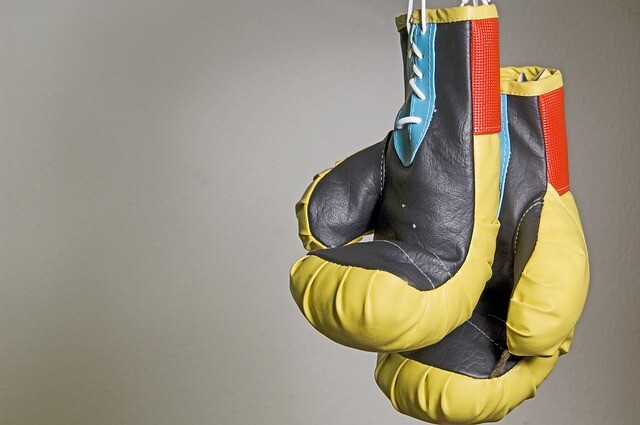 Known in his heyday as the ‘golden boy of English football’, Bobby Moore will always be best remembered for the iconic photograph of him being held aloft by teammates Geoff Hurst and Ray Wilson, Jules Rimet trophy in hand, at the end of the World Cup final at Wembley Stadium on July 30, 1966. Indeed, manager Sir Alf Ramsey later said of Moore, ‘Without him England would never have won the World Cup.’
Known in his heyday as the ‘golden boy of English football’, Bobby Moore will always be best remembered for the iconic photograph of him being held aloft by teammates Geoff Hurst and Ray Wilson, Jules Rimet trophy in hand, at the end of the World Cup final at Wembley Stadium on July 30, 1966. Indeed, manager Sir Alf Ramsey later said of Moore, ‘Without him England would never have won the World Cup.’
Born in Barking, Essex on April 12, 1941, Moore was outstanding centre-half, renowned for calmness, composure and intelligence on the pitch and humility, modesty and integrity off it. He made his senior debut for England in a friendly against Peru at Estadio Nacional del Perú, Lima on May 20, 1962 and impressed manager Walter Winterbottom sufficiently to play in every game of the 1962 World Cup in Chile, where England reached the quarter-finals.
The following year Sir Alf Ramsey replaced Walter Winterbottom as England manager and, on the first anniversary of his first senior cap, on May 20, 1963, Moore captained England for the first time in a friendly against Czechoslovakia at Tehelne Pole Stadion, Bratislava. All told, Moore made 108 appearances for England, including 90 as captain.
At club level, Moore made his professional debut for West Ham United at Upton Park on September 8, 1958, at the age of 17, against Manchester United. He was appointed captain for the first time on April 20, 1962, having just turned 21, and subsequently led his club to victory in the FA Cup in 1964 and the European Cup Winners’ Cup in 1965. All told, he made a then record 544 league appearances, and 642 in all, for West Ham United, nefore being sold to Fulham in 1974. Thereafter,
he spent short spells in America, with San Atonio Thunder and Seattle Sounders, and in Denmark, with Boldklubben Herning Fremad, before finally hanging up his boots in 1979.
Sir Gareth Edwards, knighted in the Queen’s Birthday Honours List in 2015 for services to sport and charity, was arguably the greatest scrum-half in the history of rugby union. Born on July 12, 1947, in the former mining village of Gwaun-Cae-Gurwen, near Ammanford, in South West Wales, Edwards made his international debut, at the age of 19, in a Five Nations Championship match against France at the Stade Olympique Yves-du-Manoir, near Paris in 1967. The following season, at the age of 20, he became the youngest ever captain of the Welsh national team, against Scotland at Cardiff Arms Park in the same competition.
All told, as arguably the best player in a back division that included John Peter Rhys ‘JPR’ Williams, Gerald Davies, Phil Bennett and Barry John, Edwards would win 53 consecutive caps for Wales. Remarkably, for a scrum-half, he scored twenty tries for Wales in Test matches. He also won ten caps for the British Lions, notably in New Zealand in 1971, when they lost only one game and won a Test series against New Zealand and South Africa in 1974, when they were undefeated for the entire tour.
Edwards also scored what has been described as the ‘greatest try ever’ when playing for the Barbarians against New Zealand at Cardiff Arms Park in January, 1973. In the first few minutes of the match, Barbarians’ fly-half Phil Bennett retrieved a kick from New Zealand winger Bryan Williams inside his own 22-metre line, sidestepped three opponents and passed to full-back JPR Williams. Twenty-five seconds later, Edwards capped a sensational handling move by diving over in the corner, leading commentator Cliff Morgan to exclaim, ‘A dramatic start! What a score!’
 George Best, who died in November, 2005, was one of the most naturally gifted players in the history of football. Genuinely two-footed, quick and elusive, he was equally effective on the left or right flank and garnered worldwide acclaim for his technical ability and flair. Indeed, in his heyday in the mid to late Sixties, his celebrity transcended football, so much so that he was dubbed the ‘Fifth Beatle’.
George Best, who died in November, 2005, was one of the most naturally gifted players in the history of football. Genuinely two-footed, quick and elusive, he was equally effective on the left or right flank and garnered worldwide acclaim for his technical ability and flair. Indeed, in his heyday in the mid to late Sixties, his celebrity transcended football, so much so that he was dubbed the ‘Fifth Beatle’.
Handsome, stylish and extremely well-paid, by ordinary standards, Best enjoyed a playboy lifestyle, of which he once said, ‘ I spent a lot of money on booze, birds and fast cars. The rest I just squandered.’ Sadly, though, Best suffered from lifelong alcoholism, which overshadowed his brilliant playing career, led to a controversial liver transplant in 2002 and, ultimately, resulted in his premature death, at the age of 59.
Born in Belfast on May 22, 1946, Best was scouted by Manchester United as a 15-year-old and made his first team debut against West Bromwich Albion at Old Trafford on September 14, 1963. Two First Division titles, in 1965 and 1967, and a European Cup, in 1968, followed, but Best did not stay long at the top of the game.
In 1972, beset with problems with alcohol, which led to erratic form and behaviour, not to mention weight gain, Best announced his retirement, more than once, before changing his mind. Nevertheless, he failed to recover his previous level of brilliance and made his final appearance for Manchester United in 3-0 defeat by Queens Park Rangers on January 1, 1974. Still only 27, played for 11 different clubs, including Stockport, Fulham, Hibernian and Bournemouth, without any notabel succcess, before finally retiring in 1983.
 ‘I am the greatest!” or so proclaimed Muhammad Ali – at the time, still known by his birth name, Cassius Clay – in February, 1964, shortly before becoming world heavyweight champion for the first time. On February 25, 1964, in his first meeting with Sonny Liston in Miami, Florida, Clay scored a shock technical knockout when the ‘big, ugly bear’, as he repeatedly called his opponent, failed to answer the bell for the seventh round. The pair met again in Lewiston, Maine on May 25, 1965, by which time Clay had joined the Nation of Islam and changed his name to Muhammad Ali; Ali won again, by first-round knockout.
‘I am the greatest!” or so proclaimed Muhammad Ali – at the time, still known by his birth name, Cassius Clay – in February, 1964, shortly before becoming world heavyweight champion for the first time. On February 25, 1964, in his first meeting with Sonny Liston in Miami, Florida, Clay scored a shock technical knockout when the ‘big, ugly bear’, as he repeatedly called his opponent, failed to answer the bell for the seventh round. The pair met again in Lewiston, Maine on May 25, 1965, by which time Clay had joined the Nation of Islam and changed his name to Muhammad Ali; Ali won again, by first-round knockout.
Born in Louisville, Kentucky on January 17, 1942, Professional boxer Ali was blessed not only with unprecedented boxing skills, but also extraordinary self-belief, which led to him being dubbed ‘The Louisville Lip’ by the press. On April 28, 1967, as the Vietnam War escalated, Ali refused to be inducted into the US Army on religious grounds, was stripped of his heavyweight title and had his boxing licence revoked.
That decision was reversed by the US Supreme Court in 1971; Ali would go on to win two more world heavyweight titles, against George Foreman in the legendary ‘Rumble in the Jungle’ in Kinshasa, Democratic Republic of the Congo on October 30, 1974 and against Leon Spinks in New Orleans, Louisiana on September 15, 1978. Ali also fought Joe Frazier three times, culminating in the so-called ‘Thrilla in Manila’ – widely regarded as the best fight of all time – in the then capital of the Phillipines, Quezon City, on October 1, 1975; Ali won by technical knockout after 14 rounds.
Whether or not Ali was, in fact, the greatest heavyweight boxer of all time, or merely one of the greatest, is open to debate. However, he remains the only three-time champion of the heavyweight division and few would argue that he was one of the most popular, influential and charismatic figures of the twentieth century.
